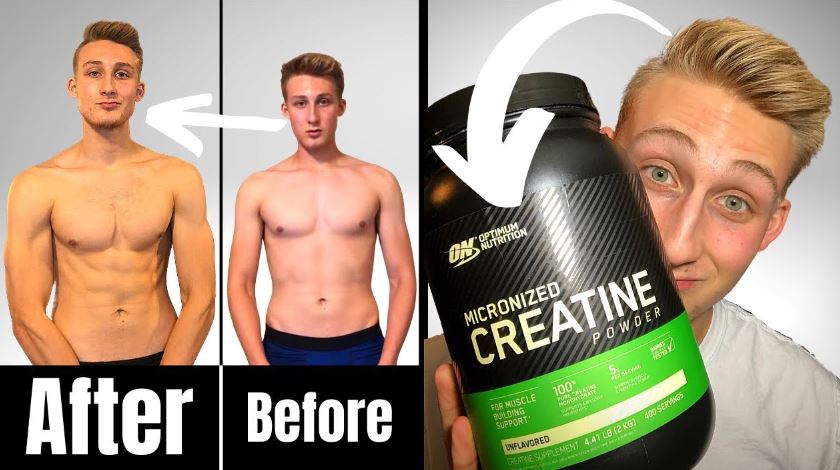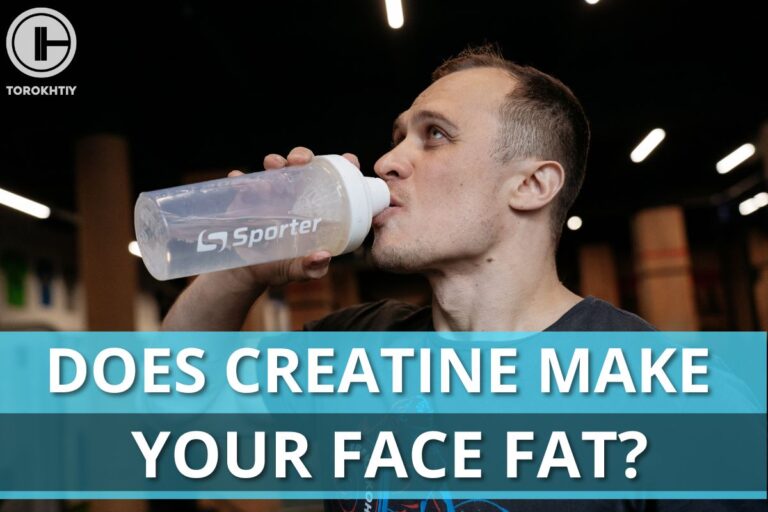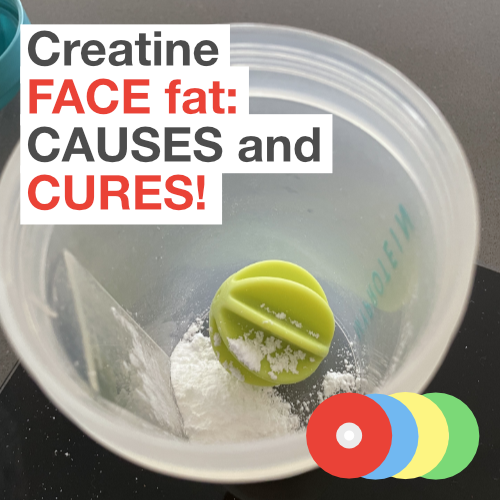Will Creatine Make Me Look Fatter

For individuals striving to enhance their physical performance and build muscle, creatine is a popular and well-researched supplement. However, a common concern among new users is the potential for weight gain and a perceived "fatter" appearance.
This article will explore the relationship between creatine supplementation and body composition changes, clarifying the science behind its effects and addressing common misconceptions.
Understanding Creatine and Its Effects
Creatine is a naturally occurring compound found in muscle cells. It plays a crucial role in energy production during high-intensity activities.
When supplemented, creatine increases the availability of phosphocreatine, which helps regenerate adenosine triphosphate (ATP), the primary energy currency of cells. This leads to improved strength, power, and muscle endurance.
Water Retention: The Primary Culprit
The initial weight gain associated with creatine supplementation is primarily due to water retention. Creatine is an osmotically active substance, meaning it draws water into muscle cells.
This intracellular water retention leads to an increase in muscle volume, contributing to a temporary increase in body weight. Studies suggest that this initial weight gain can range from 1 to 3 kilograms (2.2 to 6.6 pounds) within the first few weeks of supplementation.
"Creatine does cause water retention in the muscles. It’s a well-established physiological effect," says Dr. Richard Kreider, a leading researcher in sports nutrition at Texas A&M University.
However, it's important to distinguish this water weight from fat gain. Creatine itself does not contain any calories and does not directly contribute to fat storage.
Differentiating Water Weight from Fat Gain
The "fatter" appearance that some individuals perceive is often a consequence of this increased water retention, making muscles appear fuller and slightly softer. This is not the same as accumulating body fat.
True fat gain occurs when calorie intake exceeds calorie expenditure over a sustained period. To determine whether weight gain is due to water retention or fat accumulation, it's essential to monitor body composition changes, such as measuring body fat percentage or assessing waist circumference.
If body fat percentage remains stable or decreases while overall weight increases, the weight gain is likely attributable to water retention and increased muscle mass.
Long-Term Effects on Body Composition
While the initial weight gain is often due to water retention, long-term creatine supplementation, combined with resistance training, can lead to increases in muscle mass.
Increased muscle mass, in turn, can boost metabolism and contribute to fat loss over time. Several studies have demonstrated that creatine, when combined with exercise, promotes lean muscle growth and improves body composition.
A meta-analysis published in the Journal of Strength and Conditioning Research found that creatine supplementation significantly increased lean body mass and strength compared to placebo groups in individuals engaged in resistance training.
Dosage and Individual Variability
The impact of creatine on body weight and appearance can vary depending on dosage, individual physiology, and training regimen. A common loading phase involves taking 20 grams of creatine per day for 5-7 days, followed by a maintenance dose of 3-5 grams per day.
Some individuals may experience more noticeable water retention during the loading phase. However, this effect typically diminishes once the maintenance dose is established.
Individuals with a higher muscle mass may experience a greater degree of water retention compared to those with less muscle. Furthermore, some individuals may be more sensitive to creatine and experience more pronounced effects, while others may be less responsive.
Addressing Concerns and Maximizing Benefits
To minimize the perception of looking "fatter" due to water retention, individuals can consider starting with a lower dose of creatine and gradually increasing it over time.
Maintaining adequate hydration is also crucial, as it helps regulate fluid balance and minimizes bloating. Consuming a balanced diet and engaging in regular exercise can further contribute to a favorable body composition.
It’s also important to note that some creatine products may contain additional ingredients, such as carbohydrates or electrolytes, which can contribute to water retention or bloating. Opting for pure creatine monohydrate can help minimize these effects.
Conclusion
While creatine supplementation can lead to an initial increase in body weight due to water retention, it does not directly cause fat gain. This water weight is a temporary effect and contributes to muscle fullness.
Long-term creatine supplementation, combined with resistance training, can promote muscle growth, improve body composition, and enhance overall physical performance.
By understanding the science behind creatine's effects and addressing common misconceptions, individuals can make informed decisions about its use and maximize its benefits for achieving their fitness goals.











![Will Creatine Make Me Look Fatter Does Creatine Make You Gain Weight? [Full Answer]](https://strengthbible.com/wp-content/uploads/2022/09/creatine-and-weight-gain-header.jpg)






